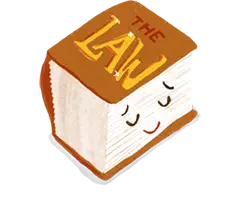School education
This page contains different parts of laws about School education, within the topic of Education and learning.

Important laws about School education
Local Government Official Information and Meetings Act 1987
Other local groups that must follow Part 7 of the Local Government Official Information and Meetings Act
Schedule 2: Local authorities (additional to those named in Schedule 1) to which Part 7 applies
Local Government (Rating) Act 2002
The Minister's report on how councils charge schools and other educational places rates, like sewage fees.
26: Report of Ministerial review of rating practice in relation to educational establishments
Immigration Act 2009
People without permission to be in New Zealand can't work or study here
21: No right for person unlawfully in New Zealand to work or study
Immigration Act 2009
Immigration officers can check education providers' records to ensure visa compliance
278: Powers of entry and inspection relating to records of education providers
Immigration Act 2009
Rules to Protect People Who Flee Their Country for Safety
Schedule 1: Convention Relating to the Status of Refugees
Immigration Act 2009
Laws Changed by the Immigration Act 2009
Schedule 3: Enactments amended
Immigration Act 2009
A fee to help fund public services like health and education when you apply for some visas.
399AB: Extended immigration levy
Broadcasting Act 1989
Te Reo Whakapuaki Irirangi helps people learn Māori language and culture through TV, radio, and internet programmes
53B: Functions of Te Reo Whakapuaki Irirangi
Broadcasting Act 1989
Things to Consider When Deciding on Funding for Broadcasting Projects
53E: Matters to be taken into account in relation to funding proposals
Sport and Recreation New Zealand Act 2002
What the Sport and Recreation New Zealand Agency does to help people get active and play sport.
8: Functions
Income Tax Act 2007
FamilyBoost tax credits help caregivers pay for early childhood education
MH 1: FamilyBoost tax credits: purpose
Local Government Act 2002
Free library membership for people living in the council area
142: Obligation to provide free membership of libraries
More laws about School education
About this project
What is this project?
How do we do this?
Why is the law written like it is?
Should we use AI for this?
Is this information the actual law?
You can talk to Community Law or Citizen's Advice Bureau about your rights.
Remember that AI can make mistakes, and just reading the law isn't enough to understand how it could be used in court.




